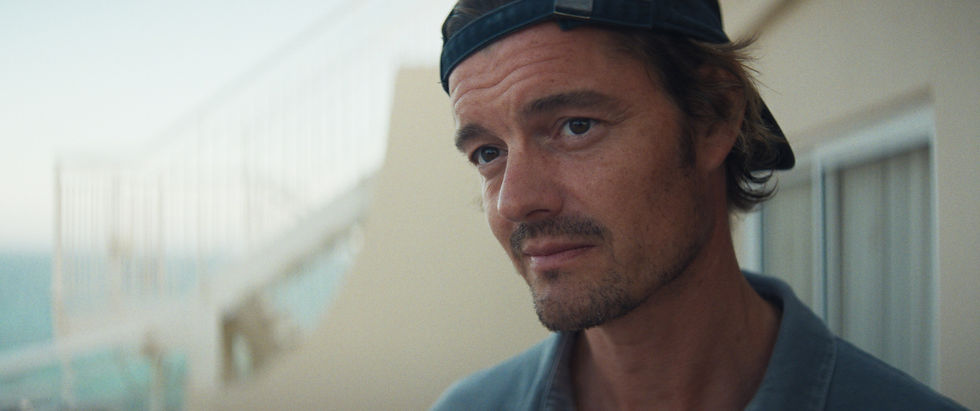Midnight Family
- Susan Gray

- Feb 18, 2020
- 3 min read
Updated: Mar 10, 2020
DOCUMENTARY DIRECTED BY LUKE LORENTZEN
81 MINS USA, MEXICO 2019
WORLD PREMIERE SUNDANCE 2019
In cinemas from 21 February
REVIEW SUSAN GRAY

‘Mind how you go’ must take on special resonance in Mexico City, a metropolis of 9 million souls served by only 45 government ambulances. For most citizens suffering sudden illness or injury, their journey to hospital will be in the back of a clapped out ambulance, run for profit, like the one featured in Luke Lorentzen’s Midnight Family.
Shot over three years Midnight Family follows the fortunes of the paramedic Ochoa family, consisting of dad Fer, 17 year old Juan, and 10 year old Josue, who prefers nights riding in the back of the ambulance to days at school. The beginning of the documentary sets the scene as Lorentzen films through the back door windows, as the ambulance reverse parks after attending an incident. It feels claustrophobic, even as the doors are opened and a bloody spinal board is removed and wiped clean. As the ambulance gets ready for the next call out, Juan chats on the phone to his girlfriend Jessica about a woman with crazy fractures from a car crash, and the adrenaline of racing to accident scenes and tending the casualties. Juan’s conversations with Jessica about incidents, jealousy and WhatsApp pepper the film, letting Jessica join the pantheon of unseen screen women from Howard’s mother in Big Bang Theory to Mrs Rumpole and Captain Mainwaring’ wife Elizabeth in Dad’s Army.
Jessica’s off screen presence provides a light counterpoint to the roster of pain, bribes and hustling seen within the ambulance, as does Fer’s loudspeaker exhortations to traffic, as they race to attend an accident or get a patient to hospital: ‘Out of the way grey car! Cyclist get on the sidewalk! Bus pull over! We could be going to save one of your family!’ Compression of time also leads to a dreamlike feeling, as if we are in a continuous night, strapped into a race with competitor private ambulances, bribing police, receiving kickback from hospitals, and providing rudimentary treatment to the distressed and injured.
Lorentzen has layered the narrative so the economics of the Ochoa’s business does not come as too much of a shock. The first patient suffering from gun shot wounds is transported to hospital for free, leaving the family out of pocket. But Andrea, whose nose has been broken by her boyfriend, is forced to give her mother’s phone number, to check for insurance, before treatment begins. Although Fer does grant her request of a (free) hug to calm her down.
The incidents we attend with the Ochoas become more and more serious. The final one where an ashen faced mother rides in the front, as her daughter’s vital signs are phoned ahead to the hospital, aurally blended with loud speaker commands to traffic, and constant phone communication with the police for tip offs, is truly harrowing. And then Lorentzen allows us some release. We spend time with Ochoas in a park in daylight, Josue is attending school. Our night time agony is ended, although we know for some unfortunate Mexico City dweller their’s is about to begin.
The Ochoa’s domestic ordinariness is at the heart of Midnight Family. Meals consist of take way tacos and midnight feasts of convenience store tuna, mayonnaise and tinned corn.Their apartment has a shower and washing machine, very little furniture, and huge Sacred Heart of Jesus statue. The family are trying to do right in a corrupt system, and it is enlightening and frightening that Lorentzen has enabled us witness that struggle in visceral close up.
Midnight Family shifted my perspective on what it is like to need healthcare in a developing economy, and deepened my sympathy for all suffering needless pain and anxiety, because while there is a sophisticated system for corrupt enrichment, there is barely any system at all to help.
dogwoof.com








